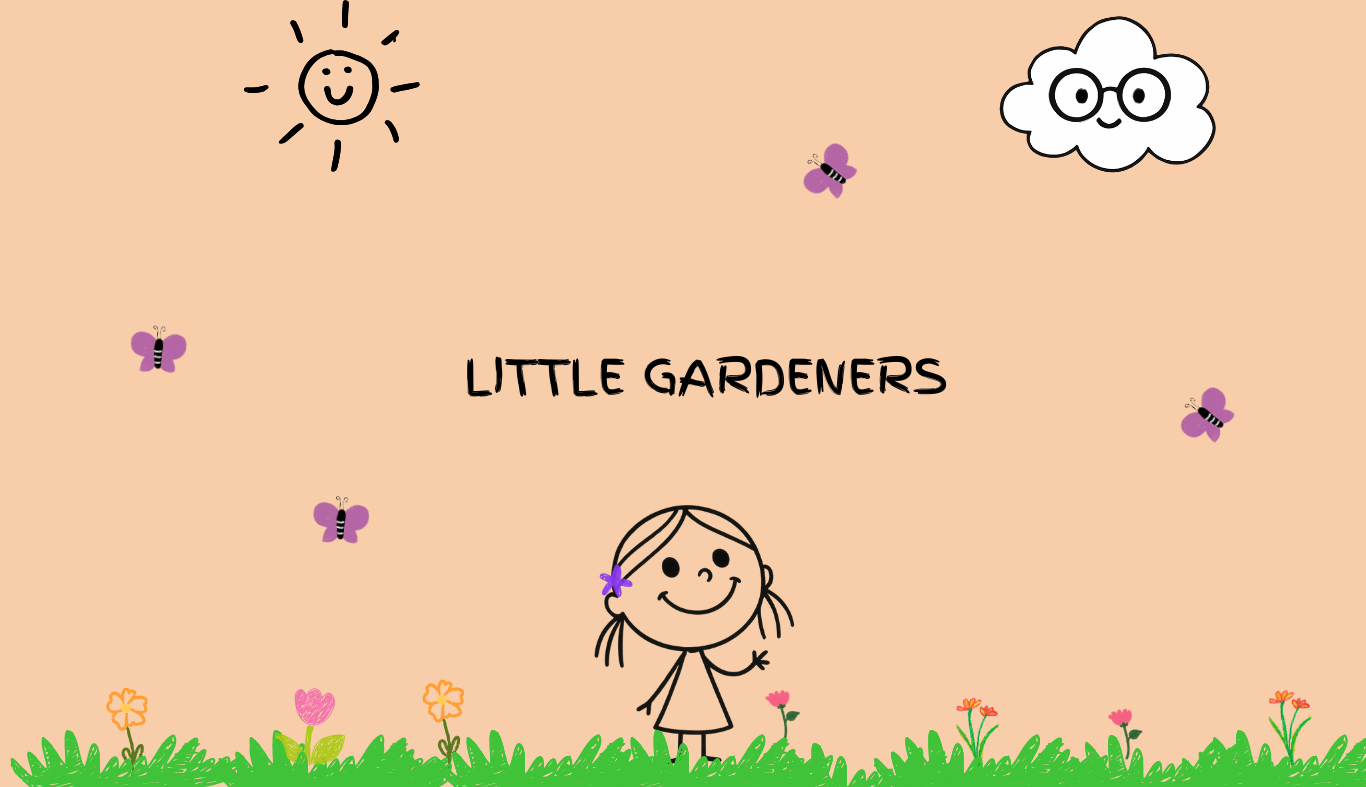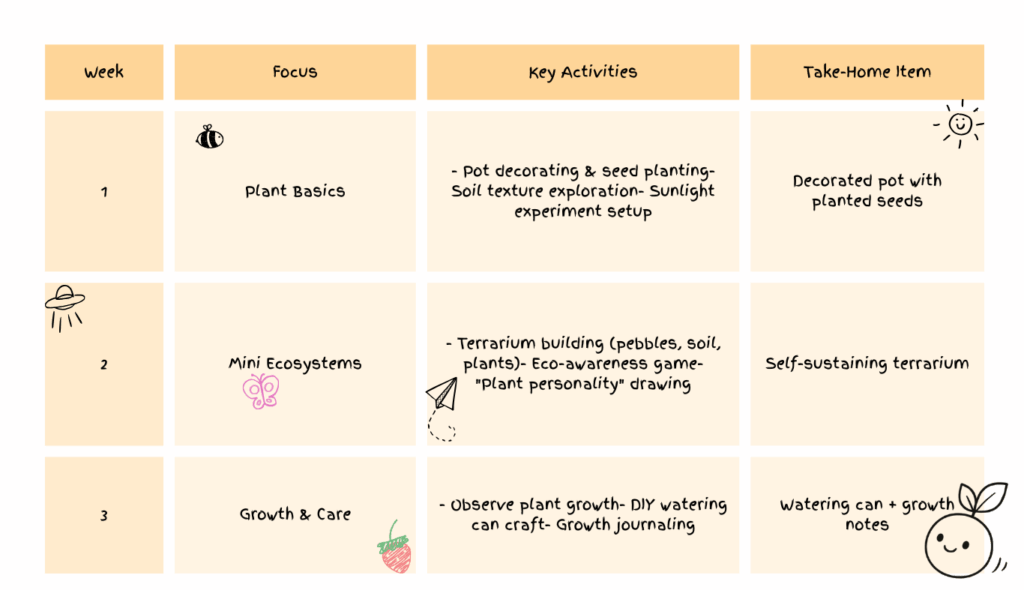
Welcome to Plinto’s Little Gardeners, where tiny hands explore the wonders of nature through play, creativity, and hands-on discovery! This 3-week interactive course is designed to spark curiosity, nurture eco-awareness, and turn kids into proud plant caretakers—all while having a blast.

Three Themed Weekly Sessions (2.5 Hours Each)
Structured Learning Flow: Each session combines theory (45 min) + hands-on activities (90 min) for balanced engagement.
All Materials Provided: No need to bring anything—we supply child-safe tools, organic soil, seeds, recycled containers, terrarium jars, and craft supplies.
Take-Home Kits: Kids leave with their own plant pot, terrarium, DIY watering can, and illustrated guidebook to reinforce learning at home.



1. Core Concepts Taught
Plant Biology Basics:
Parts of a plant (roots, stem, leaves) and their functions.
How plants “eat” sunlight (photosynthesis simplified).
Environmental Science:
Why plants need clean air/water (linked to broader eco-awareness).
The role of soil types (e.g., sand vs. compost).
Sustainability Practices:
Repurposing materials (e.g., bottles into watering cans).
Respecting nature (discussions on pollution vs. care).
2. How We Teach It
Play-Based Learning:
Sensory play: Touching soil, spraying water, observing textures.
Role-play: “If you were a plant, what would you need?”
Interactive Experiments:
Week 1’s “Sun vs. Shade” test teaches cause/effect.
Week 2’s terrarium shows the water cycle in action.
Storytelling & Creativity:
Custom stories (e.g., “The Plant in the Jar”) make abstract ideas tangible.
Art integration (decorating pots, drawing plant diaries) boosts retention.
Skills Developed
| Skill | Activity Example | Real-World Benefit |
|---|---|---|
| Responsibility | Watering their plant weekly. | Teaches consistency and care for living things. |
| Critical Thinking | Predicting which plant will grow faster (sun/shade). | Encourages observation and hypothesis-making. |
| Fine Motor Skills | Scooping soil, threading strings for labels. | Prepares for writing and detailed tasks. |
| Eco-Consciousness | Sorting “helpful vs. harmful” items for plants. | Builds early sustainability habits. |

Science Made Simple: Complex ideas (like ecosystems) are broken into playful, memorable moments
Emotional Connection: Kids name their plants, track growth, and feel pride in nurturing life.
Parent Involvement: The take-home kit and guide extend learning beyond class, with tips for family activities.
Perfect for: Curious kids who thrive with hands-on exploration, or those who need gentle encouragement to engage with nature!